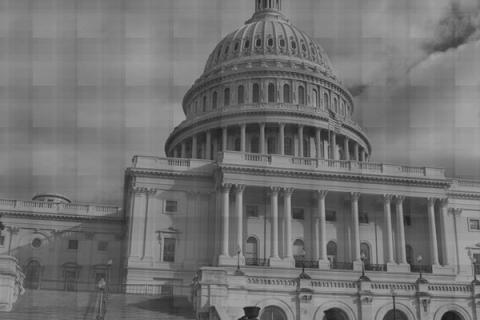 Michael Jackson's doctor, Conrad Murray, 58, was found guilty of involuntary manslaughter in the 2009 death of the world famous pop singer. The jury of seven men and five women took less than two days to deliberate before convicting Murray in Jackson's death.
Michael Jackson's doctor, Conrad Murray, 58, was found guilty of involuntary manslaughter in the 2009 death of the world famous pop singer. The jury of seven men and five women took less than two days to deliberate before convicting Murray in Jackson's death.
Dr. Conrad Murray was a Houston cardiologist who began working for Jackson as he rehearsed in Los Angeles for the "This Is It" series of 50 sold-out concerts in London that Jackson desperately needed in order to pay off hundreds of millions of dollars of debt. Murray was paid $150,000 a month to work as Jackson's personal physician. During the trial, testimony revealed that the eccentric pop singer frequently asked, and even begged Murray to administer powerful drugs in order to help him sleep, including the drug ruled as the cause of his death, a surgical anesthetic called propofol.
Prosecuters argued that Murray was money hungry and criminally negligent, and that his actions directly caused Michael Jackson's death. These include administering propofol in the first place, doing so outside of a hospital without monitors, and not calling 9-11 right away. They also pointed out that Murray didn't mention the propofol to paramedics as they arrived on the scene, arguing that this showed Murray knew what he did was wrong at the time.
Conrad Murray's defense argued that he didn't administer the lethal dose of propofol on the night of Jackson's death, but that Jackson administered it to himself with a syringe after Murray had left the room. While acknowledging Murray's negligence, they argued that it wasn't a criminal matter, but one that should have been heard by the state medical board. Lead defense lawyer Ed Chernoff asked in his closing remarks: "If it were anybody else but Michael Jackson, would this doctor be here today?"adding that Murray "was just a little fish in a big, dirty pond."
One broader, more philosophical issue raised by the case hasn't been touched by the mainstream media: What is the exact nature of the patient/physician relationship? To what degree is a doctor responsible for a patient's choices? What is the proper balance between exercising expert medical judgment and respecting a patient's decisions? And do human beings have a moral right to make decisions about their own bodies? Even if they are bad decisions? Even if they are risky decisions?
To even suggest answers to these questions is beyond the scope of this article and would take much more than a single article to adequately explore. But they are not only worth reflection, they are the actual fundamental issues raised by Jackson's tragic death. It is tempting and easy to get swept away in the drama and morbid glamour of every excruciating detail of a case like this, but besides lacking in good taste, that sort of coverage doesn't address the deeper questions raised by this death. It doesn't get the public working toward understanding the principles that underly the best possible society we can have and live in.
That is not to suggest that the details don't matter or that the media shouldn't report them. Michael Jackson's life and death certainly do matter, at the very least to the literally millions of fans who have been touched by his work. Justice for both Jackson and Murray do matter. But what do the details of this case ultimately mean? It is only by answering these questions that we can provide justice for both of these men and for generations of doctors and patients to come. Consider this article an admonition to take a step back and filter the details of Murray's case through a set of coherent principles-- a thought catalyst to help you make up your own mind independent of the mainstream media's reporting. And feel free to answer any of the questions above in the discussion thread below.
